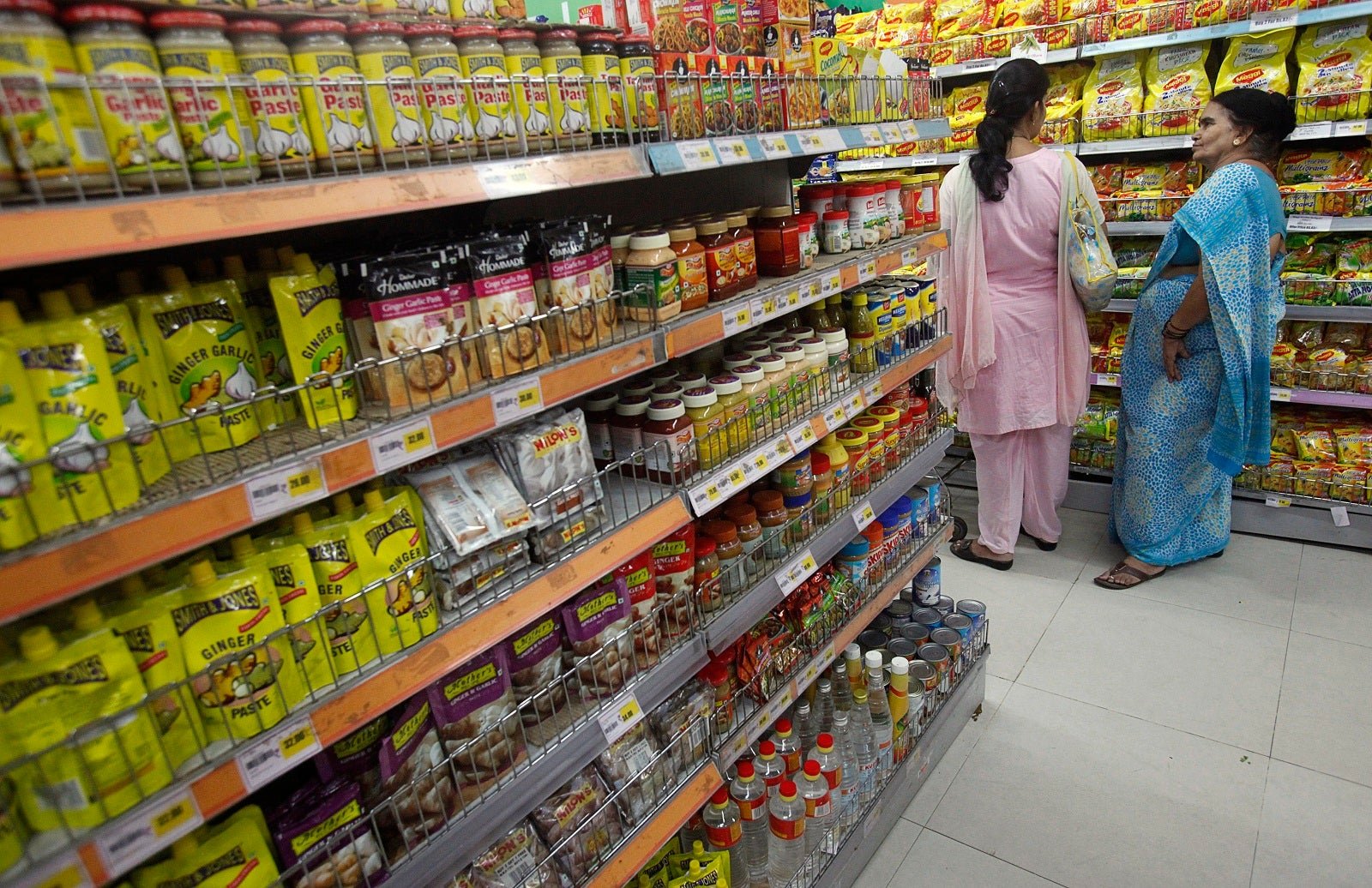India’s organised retailers and e-tailers hold up, while kirana stores face the brunt of slowdown
E-commerce and modern retail are saving the day for India’s slump-hit consumer goods sector.


E-commerce and modern retail are saving the day for India’s slump-hit consumer goods sector.
In October-December 2019, fast-moving consumer goods (FMCG) sales on e-commerce platforms jumped 53%, while organised retail stores recorded 15% growth from a year earlier, a report by Mumbai-based market research company Nielsen has said.
Traditional trade through kirana stores, historically the predominant channel with a 90% market share, grew at a tepid 6%, down from 16% in the year-ago period.
Overall, FMCG grew at 7.3% as against 15.7% in October-December 2018.
Affordable product pricing and festive sales helped growth through e-commerce and organised retailers. “Growth witnessed in modern trade is due to distribution expansion and same-store throughput growth (higher sales at standalone stores), while e-commerce is witnessing high growth through increased adoption by consumers and manufacturers,” said Prasun Basu, the south Asia Zone president at Nielsen Global Connect said.
Modern trade in India is dominated by brands such as Future Group’s BigBazaar, Avenue Supermarts-owned DMart, and Reliance Retail-owned convenience store Reliance Fresh. The availability of a wide range of products under one roof is a key factor in their rising popularity.
They compete with e-commerce platforms such as Walmart-owned Flipkart, Amazon, BigBasket, and Grofers, which have grown due to affordable pricing and heavy discounting.
Traditional retailers, on the other hand, are struggling, the Nielsen report said.
Rural sales contribute 36% to overall FMCG spends, and in the past few years recorded 3-5 percentage points higher growth than urban spends. However, in October-December 2019, rural FMCG sales growth fell lower than urban India’s for the first time in seven years.
Nielsen expects the sector to clock up to 10% growth in 2020.